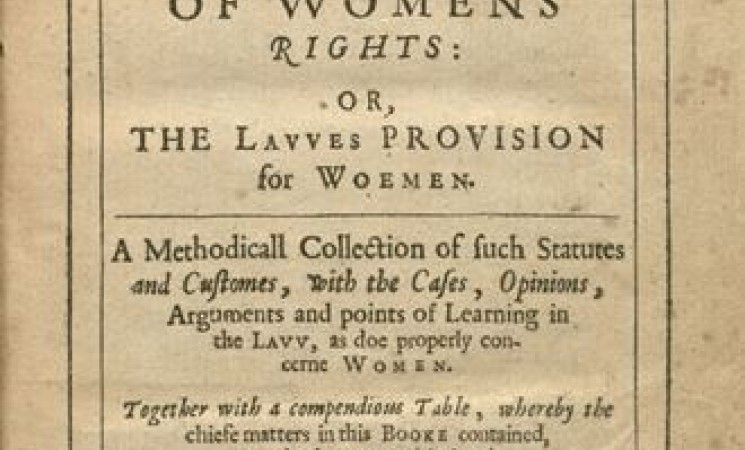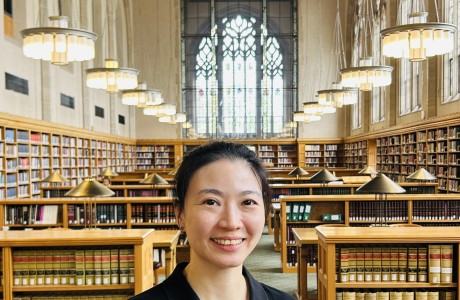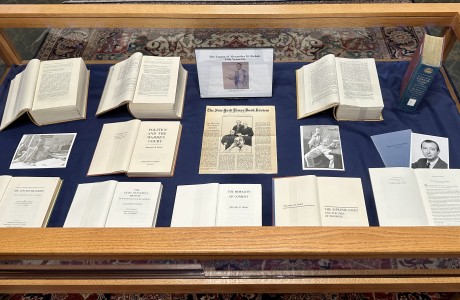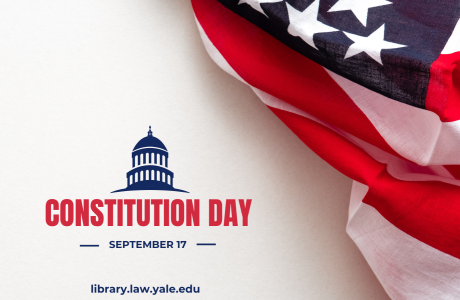The Taussig Collection: Women's Rights

One of the Library’s notable Taussig acquisitions is the first work devoted to the laws and rights of women in English law, and the only edition of that work. Published anonymously in 1632, The Lawes Resolutions of Womens Rights, or, The Lawes Provision for Woemen has sometimes—though inconclusively—been attributed to Sir John Doddridge (1555-1628), the Renaissance jurist, antiquarian and Justice of the King’s Bench. The editor of the work, signed as T.E. and sometimes associated with a “Thomas Edgar,” pleads ignorance about the identity of the original compiler, but notes that he has added cases and corrected mistakes. The role of T.E. in organizing the work may have been substantial, yet its genesis remains something of a puzzle.
Whatever the circumstances leading to publication, the writer(s) justified their work with a literary flair usually absent from law books. As part of a brief conceit, the preface asks: “It’s enough, if what was before, be now so changed by Method and Application, that it shewes as new, and becomes more ready for Use…Why then should this Booke blush to shew it selfe?” Later the preface assures that the aim of the work is “A publique Advantage and peculiar Service to that Sexe generally beloved, and by the Author had in venerable estimation.”
Although The Lawes Resolutions does not advocate for women’s rights in a modern sense, it does represent a broad repertory of contemporary law. The work draws together the “statutes and customs, with the Cases, Opinions and Arguments” which pertained in common law to women in the period. The five books cover the rights of an unmarried woman, or feme sole, the laws of marriage, the rights of widows and the ability to plead in court. The work makes no apology for coverture, under which a woman’s legal status was subsumed to that of her husband during marriage, but also treats the wider legal capacity which women enjoyed as widows in common law. A humorous side is shown again in the prefaces to the chapters, with such advice as “why mourn you so [young widows]…now you be free in libertie,” and in warnings against feckless suitors and heirs. The work offers interesting insight into the legal status of women in early modern England, and is a wonderful addition to the Library’s holdings.
The Taussig acquisitions were funded in large part by a generous grant from Yale Law School’s Oscar M. Ruebhausen Fund.
– RYAN GREENWOOD, Rare Book Fellow


